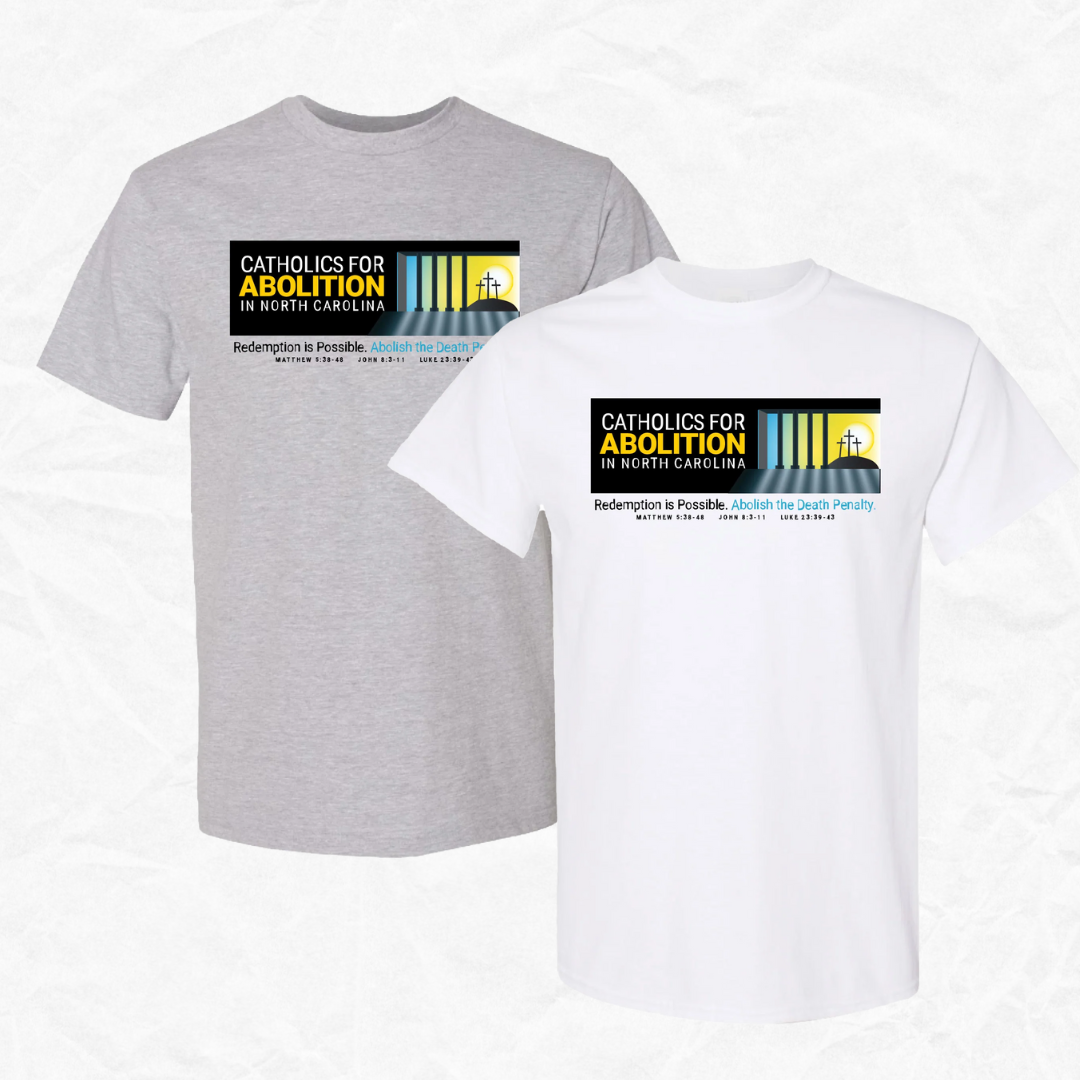For me, it was a gradual journey. Usually, death penalty crimes are heinous crimes of murder and mayhem that make headline news. The cry for “justice for the victims and the families” is loud and righteous. For many years, I agreed. People who commit such crimes should be punished to the maximum extent allowed by law, which is the death penalty. Case closed. I didn’t really think about it. Executions are not an everyday occurrence and do not make the headlines like the crimes or the trials do.
Four years ago, I retired and moved to North Carolina and joined St. Francis of Assisi Catholic Church. My wife, MaryAnn, joined the Pen Pal ministry and began to correspond with a prisoner on death row. Two years ago, MaryAnn’s Pen Pal asked if she knew of someone to write to a new prisoner in his pod and I decided to do it. My Pen Pal has been on death row for 28 years. He has no family or visitors and so is alone. He committed a terrible crime when he was eighteen and has been in jail and on death row since then. Part of my Pen Pal training included guidance on what to write. One usually does not write about or discuss the crime. Pen Pals are there to provide human contact and support for people in prison that otherwise might have no contact with anyone outside of prison. Getting to know and corresponding with my Pen Pal and listening to other Pen Pals at St. Francis share their stories made the humanity of the people on death row real for me. They were no longer statistics filed away out of sight and mind. There are 135 people on North Carolina’s death row; 133 men and 2 women. I certainly do not want to minimize or excuse the crimes for which they were convicted or the pain and injury they caused to the families of their victims. However, they are human beings, and I cannot see the justice or the need to have the state take their lives in retribution for their crimes. “As Catholics, we are called to live with justice and mercy and uphold the value of all life. The death penalty violates both the Church’s pro-life teaching and the teaching on the inherent dignity of the human person as created in the image and likeness of God.” (Catholic Mobilizing Network)
As I became more involved in the Pen Pal ministry, I decided to learn more about the death penalty in the United States and in North Carolina. The more I learned, the more convinced I became that the death penalty must be abolished. The amount of data supporting abolition is compelling. There are religious, legal, and practical reasons why the death penalty should be abolished. Here are my top four.
1. The death penalty is immoral. It violates the teachings of the Catholic Church and many other religions.
2. The death penalty is cruel and unusual punishment and so unconstitutional. The Supreme Court has not agreed yet but what could be crueler than being locked-up for years with an unknown but certain date of execution. Prisoners have been prepared for execution and then had temporary “stays of execution” sometimes more than one so they had multiple trips to and from the death house and even to the execution chamber. Death row prisoners are often denied access to training, education or work as “they are not there for rehabilitation” (as quoted from a prison employee).
3. Mistakes are made. People are wrongly convicted and sentenced to death. The Death Penalty Information Center reports at least 190 people have been wrongly convicted and exonerated since 1973. There is no accurate count of those wrongly executed because full reviews of such cases are rarely followed through to conclusion. There are many documented cases where wrongful execution was probable. Like many areas of our society, racism often played a role in wrongful convictions and the death penalty. In NC, a Black person is more than twice as likely to receive a death sentence as a White person. In 2009, the NC Racial Justice Act allowed death row inmates to have their cases reviewed if race could be demonstrated as a factor in their sentencing. The law was controversial and was reversed by a subsequent session of the NC legislature. Legal appeals and reviews are still pending and in process. Poverty also plays a role. Many defendants can’t afford the investigative and legal costs to mount an adequate defense. The “public defender” system in capital trials has improved but is still significantly under-resourced.
4. Death penalty cases and death row incarceration is at least 3 to 4 times more expensive than life prison sentences. Costs and studies vary but are unanimous that the Death Penalty is much more expensive than life sentences. (Sources: NCCADP, Amnesty International, Death Penalty Information Center)
I have just begun my work to abolish the death penalty. I also believe that I have so much more to learn about the injustice of the death penalty to make me a more effective advocate for the abolition of the death penalty. I have no illusions that abolition will be easy. The death penalty has been around forever and many good people like me accepted it. Even so, I am hopeful that as more countries and states ban the death penalty a more thoughtful review and continued focus on the injustice of the death penalty will bring about its abolition in North Carolina and the United States.
There are a host of improvements to be made in our criminal justice system, but we can at least start by stopping the state from killing in the name of justice. Won’t you please join us in helping to end the injustice of the death penalty?
